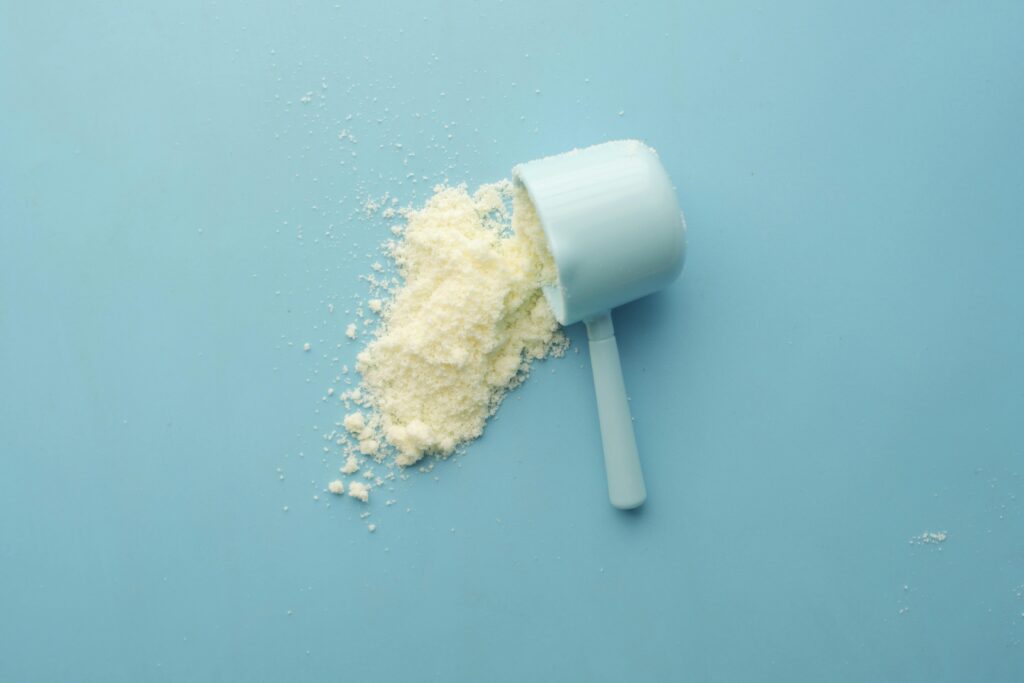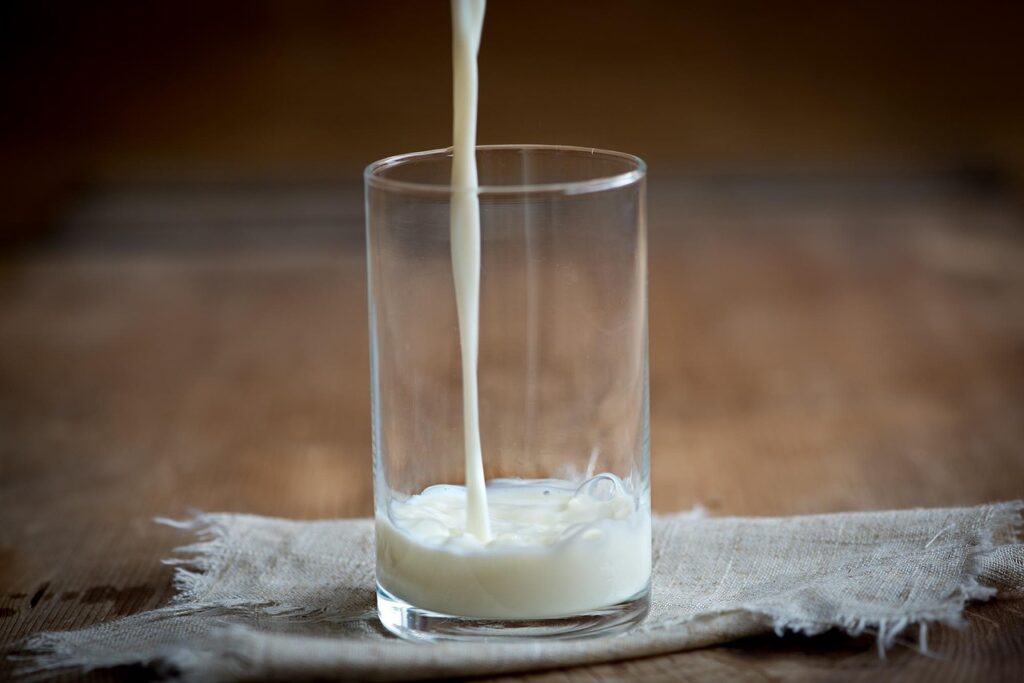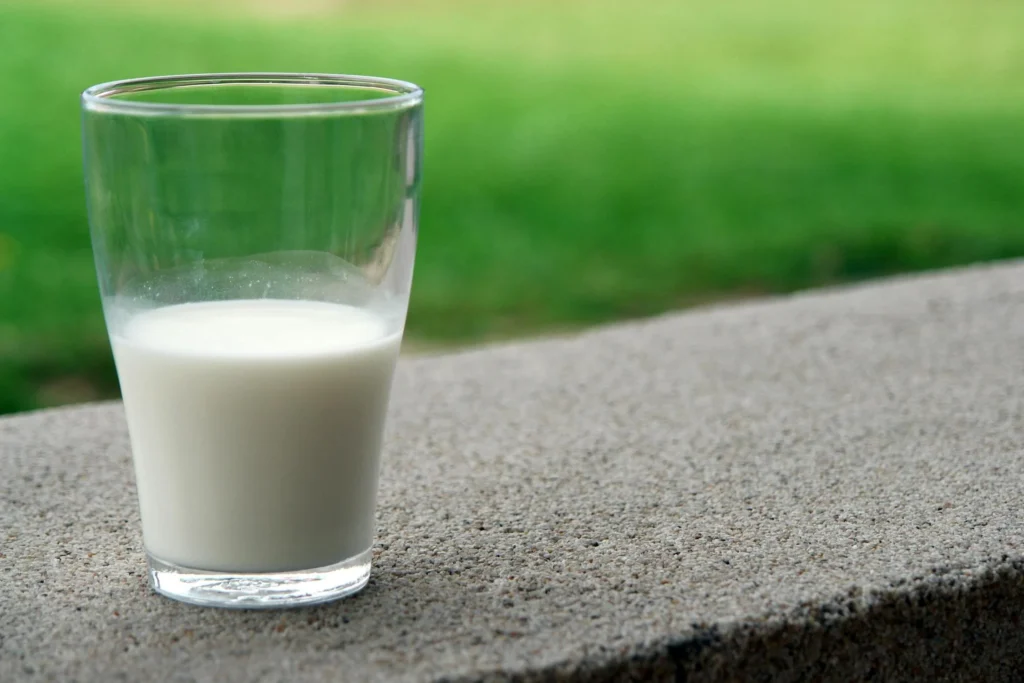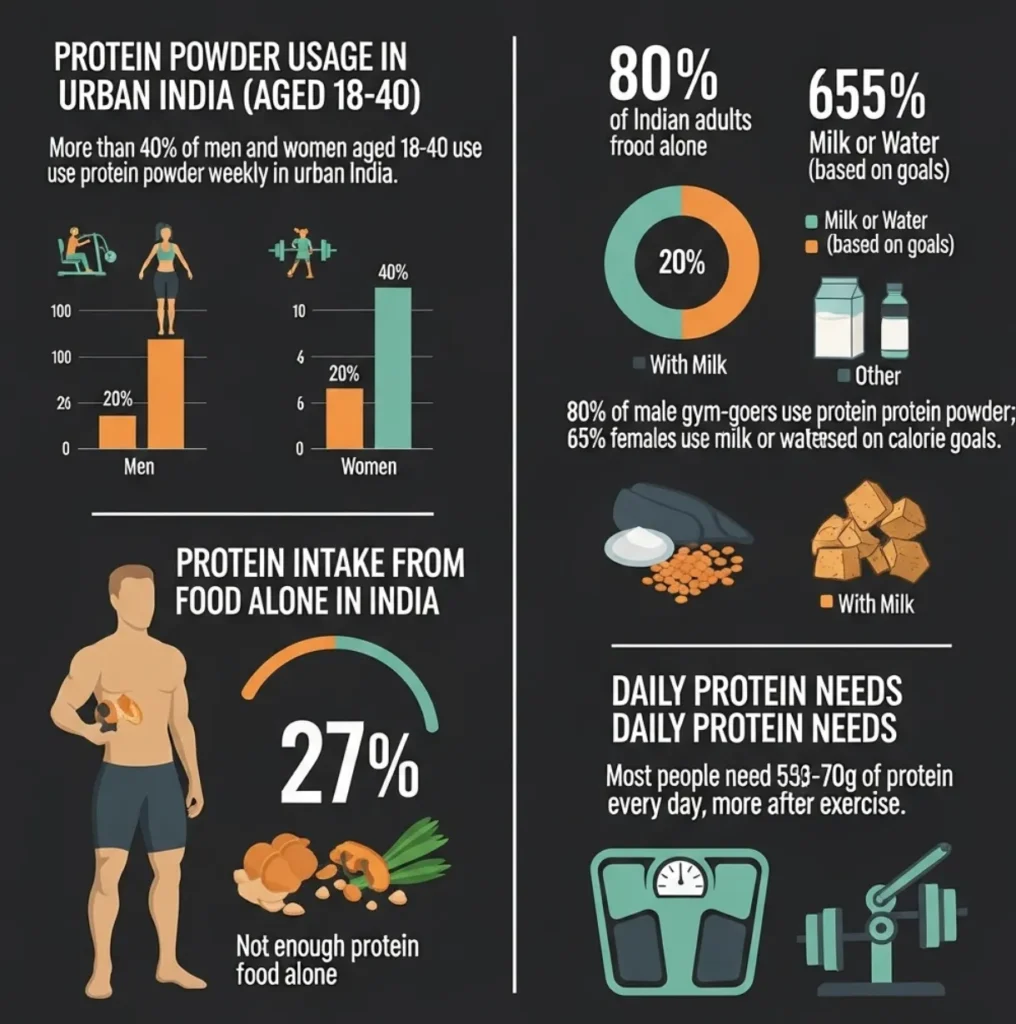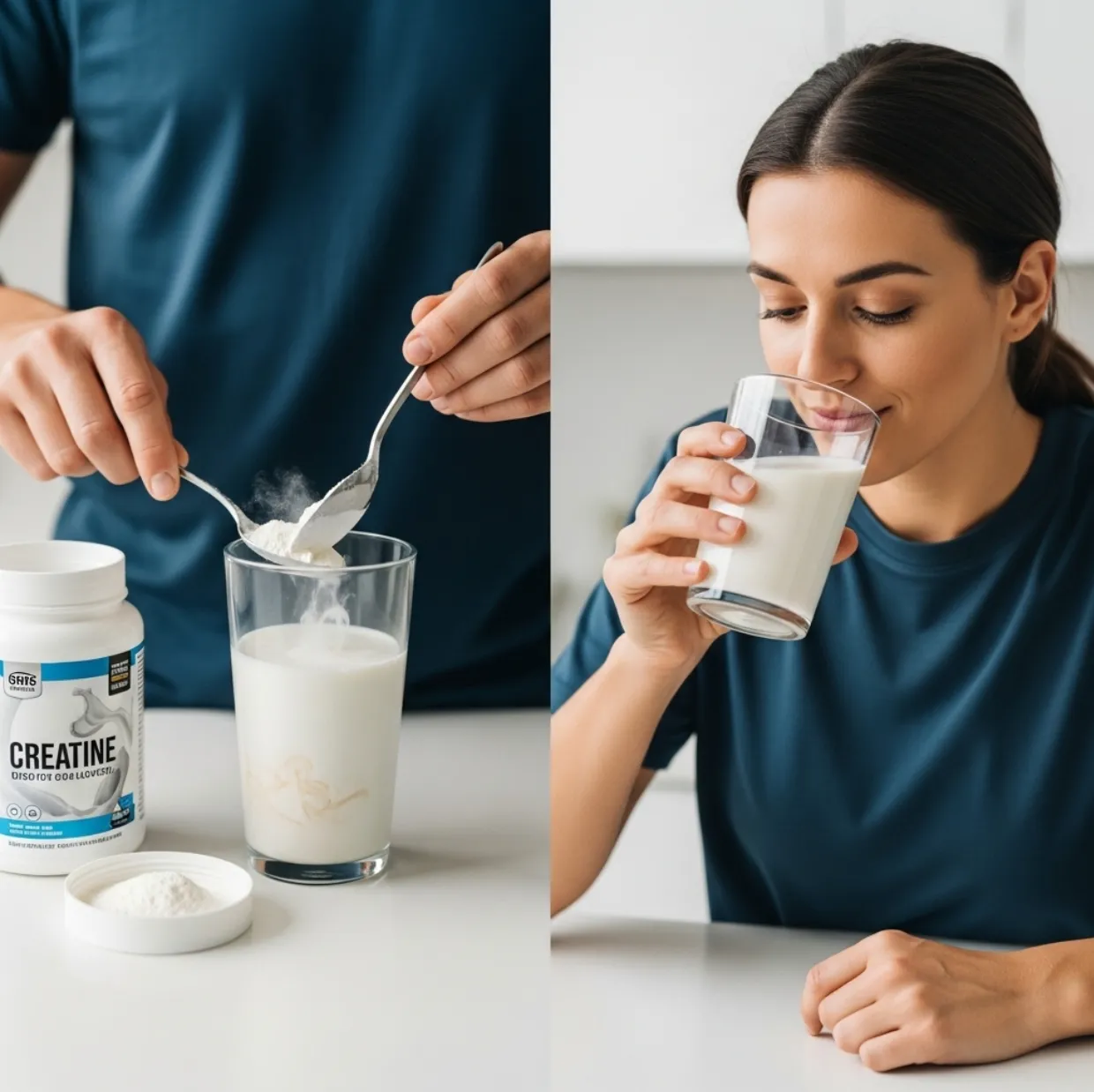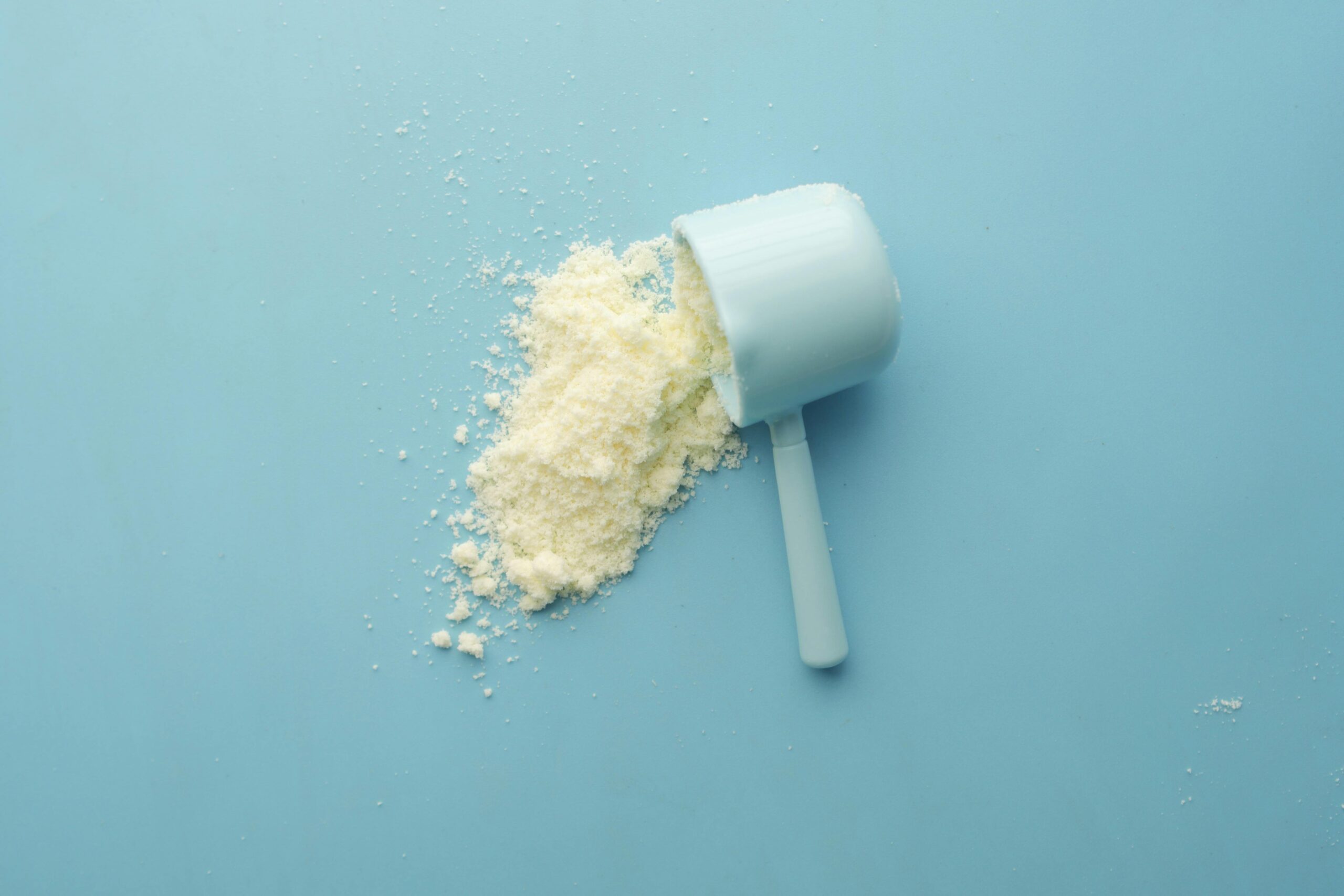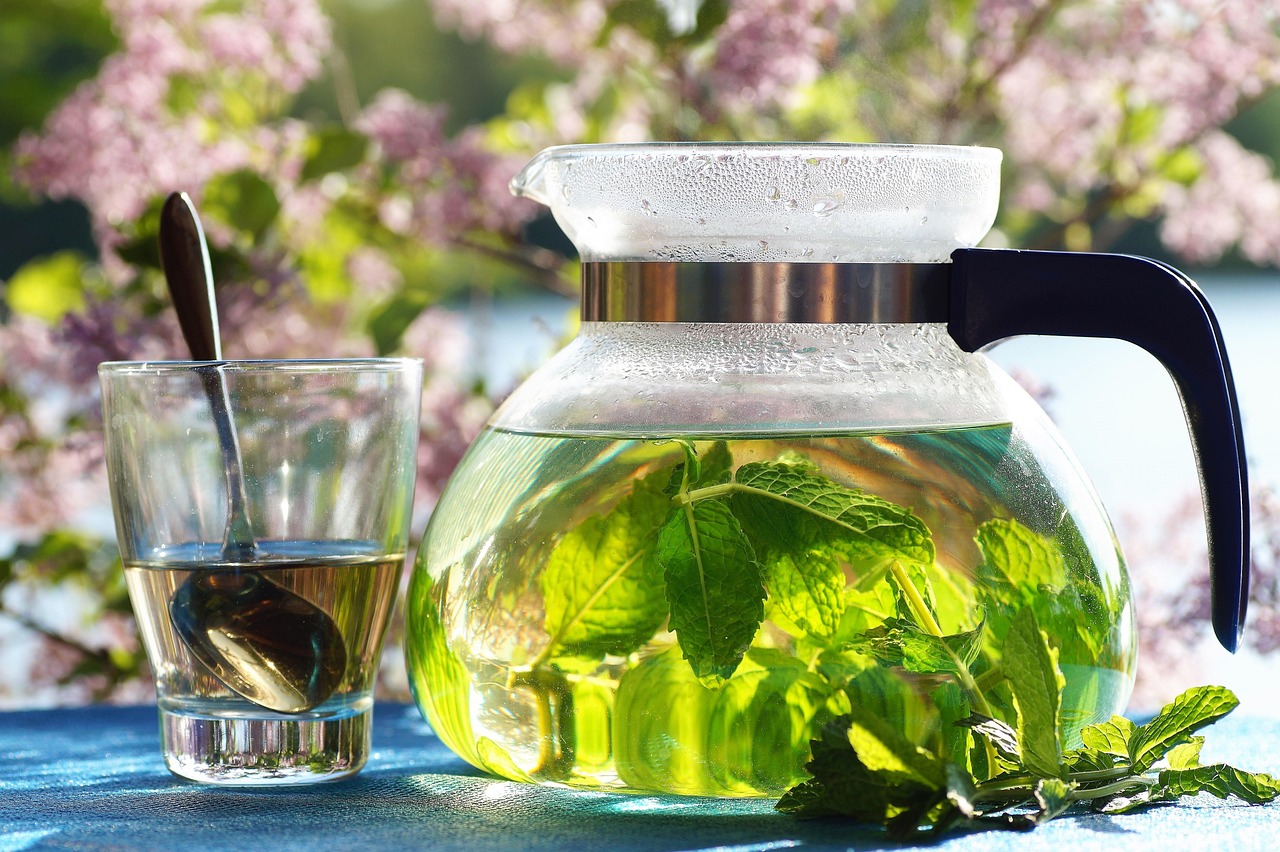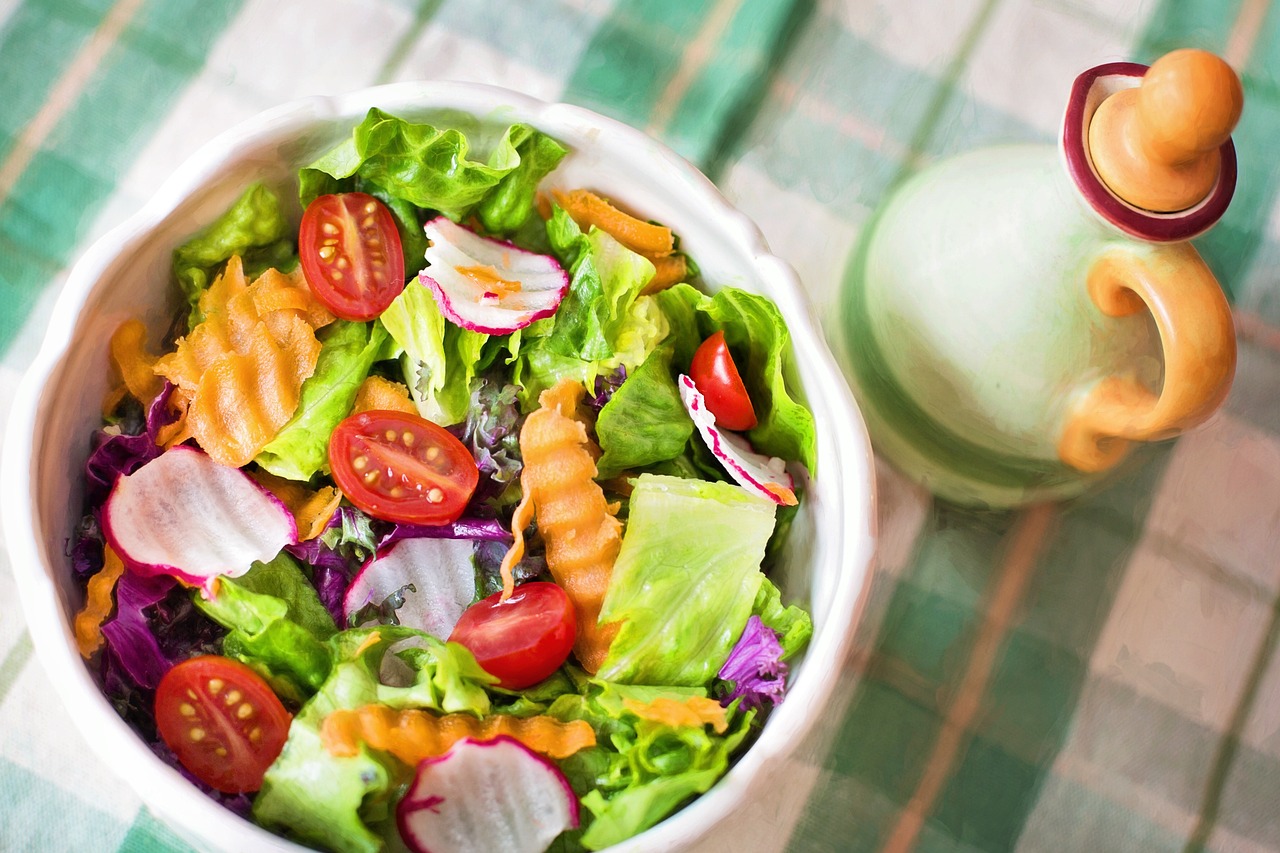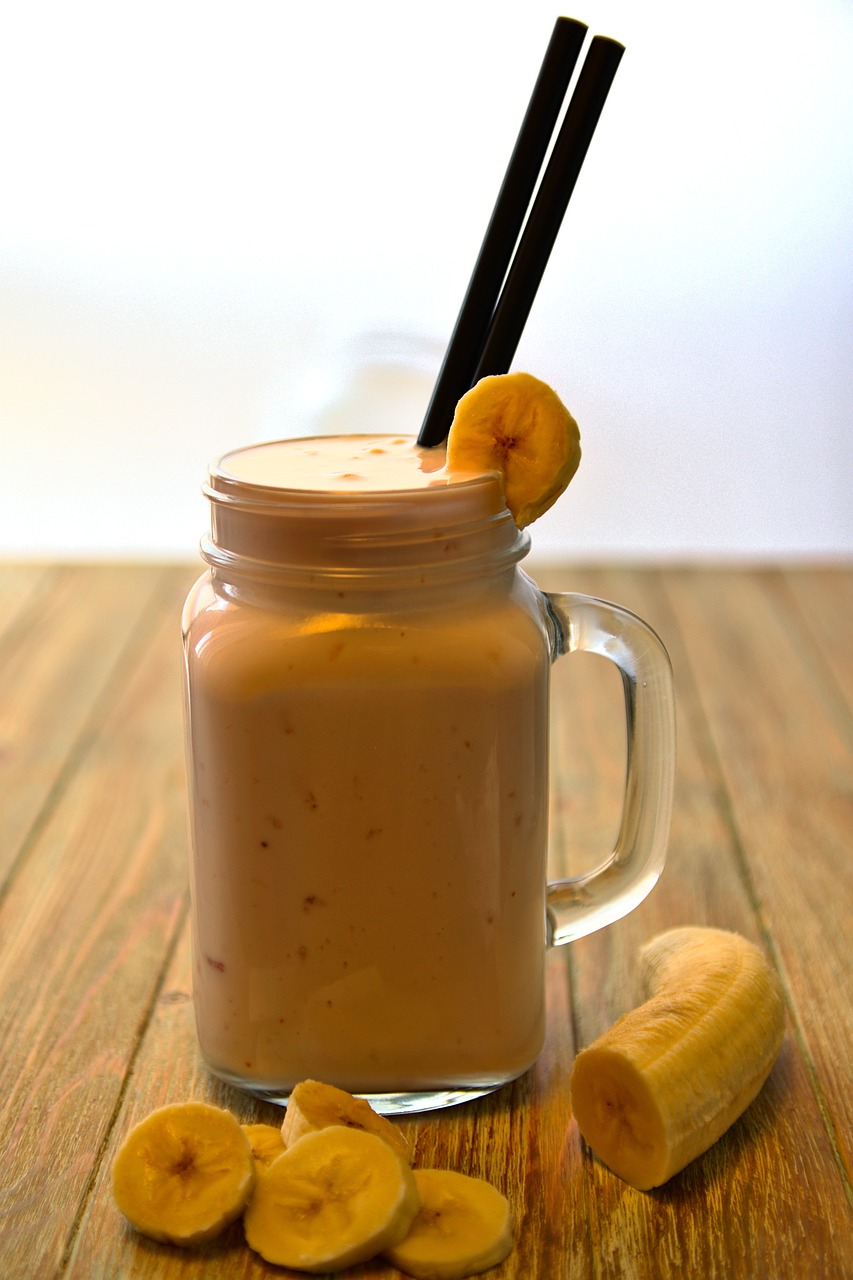Protein shakes are popular in India and across the world.
Everyone wants to get healthy, build muscle, or lose weight.
But many people ask me: “Should I mix my protein powder with milk or water?” Let’s make it simple and easy to understand!
Why Do People Use Protein Shakes?
- Protein helps your body build muscles and bones, and keeps you full.
- Many adults don’t get enough protein from food. That’s why protein powders are so common.
- In India, sales of protein powders are rising every year. In the US, about 46% of people (men and women) use supplements like protein powder for health or fitness.
- Many gym-goers — both men and women — drink protein shakes after workouts to build muscle.
Should You Use Milk or Water?
It depends on your health goals, taste, and dietary needs.
If You Want Fewer Calories and Carbs
Use water!
-
- Water has ZERO calories.
- A protein shake with water has about 100 calories and 25g of protein (based on one scoop of whey protein).
- Water is beneficial for weight loss and for individuals with allergies.
If You Want More Protein and Nutrition
Use milk!
-
- Milk adds extra protein, vitamins, and calcium.
- One cup of milk has about 8g of protein and 150 calories.
- A shake with milk has about 250 calories and 33g of protein.
- Milk is good for muscle builders, athletes, and those needing more calories.
Other Milk Options
- Almond milk, soy milk, cashew milk, and oat milk are great choices for people who avoid dairy.
- Soy milk has about 9g of protein per cup (more than cow’s milk).
- Nut milks are creamy but have less protein than soy/cow’s milk.
What Tastes Better?
- Milk makes shakes creamy and thick.
- Water mixes easily but tastes less sweet and is thinner.
- Some people use flavored protein powder with water for a better taste.
Workout Benefits
- For gym and muscle building, combining protein with milk provides extra protein, which is beneficial for muscle growth.
- Milk helps muscles recover better and prevents soreness (tight or painful muscles after workouts).
- But even shakes with water work well for recovery and are great for most people.
Things To Consider
- Diet: If you are vegan or avoid dairy, use water or plant-based milk.
- Health: If you have lactose intolerance or allergies, use water or safe milk alternatives.
- Taste: Choose what you enjoy and can drink every day.
Simple Stats
- More than 40% of men and women aged 18–40 use protein powder weekly in urban India.
- 80% of male gym-goers use protein powder with milk; 65% of females use milk or water based on calorie goals.
- Only 27% of Indian adults get enough protein from food alone.
- Most people need 50–70g of protein every day, more after exercise.
Quick FAQs
Does milk make protein powder work better?
Yes, milk gives your shake more protein and helps muscles grow.
Will water make my shake lighter?
Yes, water gives a thin shake with fewer calories.
Is it okay to use soy or almond milk?
Yes, soy and almond milk are good for people who don’t drink cow’s milk.
Will milk cause problems for my stomach?
Some people feel bloated with milk. If you do, use water or plant milk.
Should I use milk for weight loss?
Water is better for low-calorie shakes. Milk is better if you need more calories or muscle gains.
Also Read:
Final Advice
- Mix your protein powder with milk for an extra protein boost and a creamy shake.
- Use water if you want fewer calories, less sugar, or if you don’t drink milk.
- Both options are good. Choose what matches your goals, health, and taste.
- Remember, protein shakes help your health, but food protein (beans, eggs, meat, seeds) is important too.
Protein with milk or water: Both are good! Pick the way that feels best for you.

